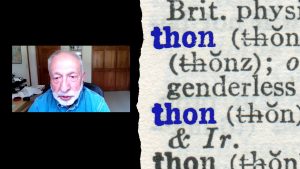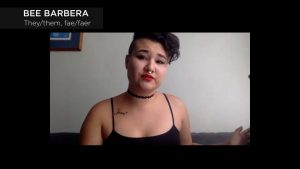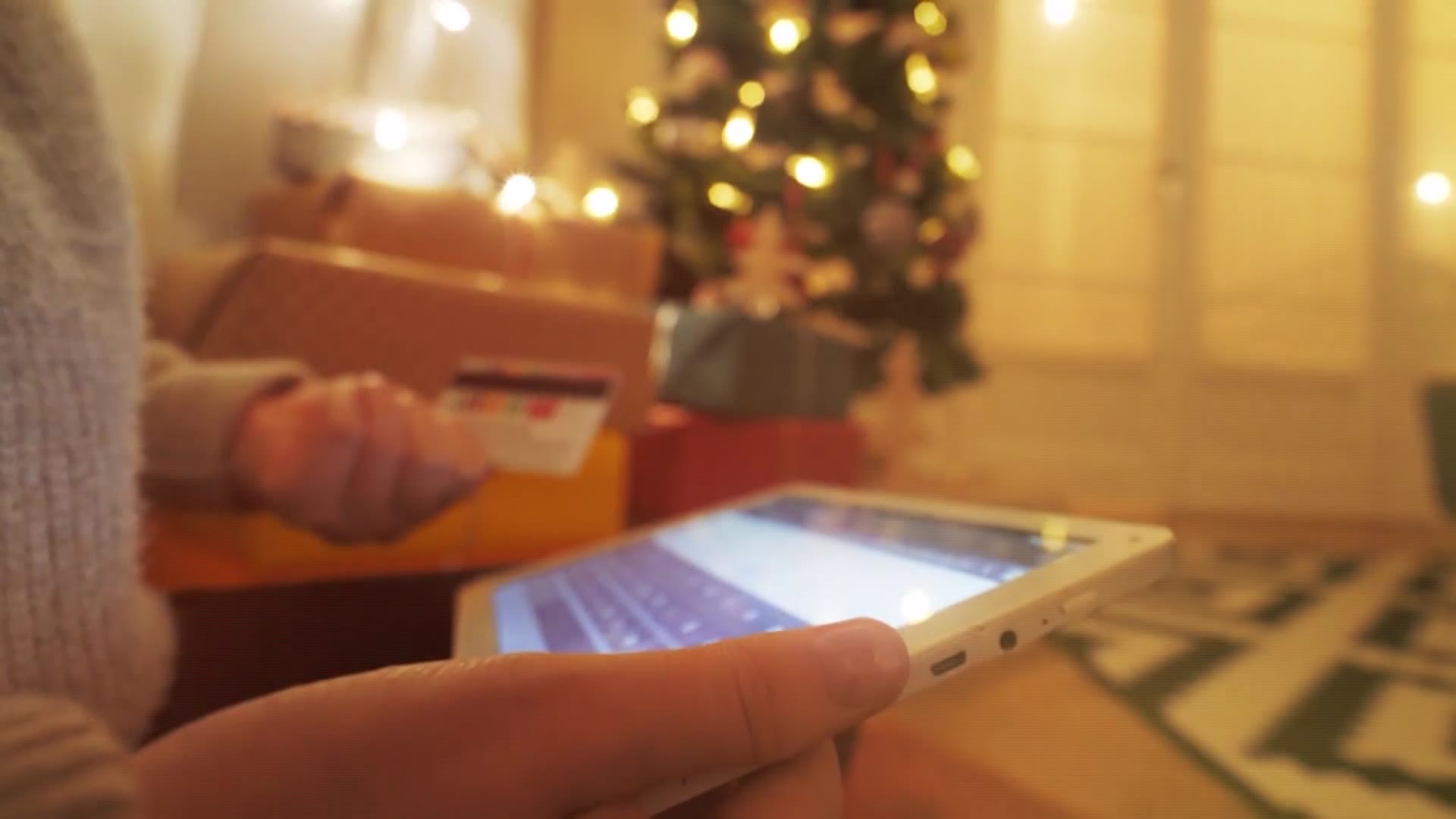New pronouns are nothing new
Nov 8, 2021, 11:08 AM
SALT LAKE CITY — There’s been a lot of talk about pronouns over the past few years — how to refer to people who are nonbinary and don’t want to be spoken of as a “he” or a “she” — but this discussion, the pronoun part of it, has actually been going on for centuries.
“They’re not new at all,” says linguist Dennis Baron, who began collecting proposed nongendered pronouns 40 years ago. His book, What’s Your Pronoun, catalogs about 250 gender-neutral pronouns suggested over the past two centuries.
“As early as the 14th century, the need (for a gender-neutral pronoun) seemed to exist,” he says. “They,” used as a singular pronoun, has been traced back to that time.
Barron, professor emeritus of English and linguistics at the University of Illinois, says grammarians in the 1700s decided English needed to be more “respectable” like Latin.
They thought “if you’re gonna speak a world-class language, it should follow world-class rules,” Barron said. They decided people should use the “he” instead of “they.”
“He” fell out of favor during the feminist movement of the 1970s, and Baron said even as early as the 18th and 19th centuries people realized the “he or she” option was too cumbersome.
“We don’t have a singular (nongendered) pronoun. A lot of people thought ‘they’ was ungrammatical at the time,” Barron says. “Let’s invent something, let’s coin something. Everybody had an idea.”
The suggestions included “ip,” “se,” “um” and “le.” There was “hizzer” (a combination of “his” and “her”), “heesh” (he/she) and “himmer” (him/her).
In the 1800’s Charles Converse, lawyer and composer of “What a Friend We Have in Jesus,” suggested “thon.” That word actually caught on for a while.
The Sacramento Bee proposed “hir” and used that word sporadically in the newspaper into the 1940s.
People continue to invent new pronouns, or neopronouns.
Utahn Bee Barbera, who identifies as nonbinary, uses “they/them,” as well as what are now called nounself pronouns — pronouns derived from nouns. Barbera uses “fae/faer,” derived from the word “faery.” They found “fae/faer” on the social media platform Tumblr 10 years ago, but just started using them this year.
“For me, (rather than an association with the magical and fantastic) it expresses a concept of femininity outside of the binary,” they said. “That’s a pronoun I predominantly use with other trans and nonbinary people because I know that for a lot of people who aren’t comfortable or familiar with neopronouns, ‘they’ is already still such a struggle.”
When people use the pronouns Barbera has chosen, they say, “it means that they’re acknowledging me, under my reality, rather than their assumed reality of me. So, for instance, if someone were to refer to me as ‘she/her’ … they tell me that they see me as a woman. They tell me that they would rather assign me their perception … rather than take the time to ask me, ‘What are your pronouns?’”
Baron says today, English speakers and writers haven’t been able to agree on just one solution. But “they,” which had been a plural pronoun on paper, is clearly the default nongendered singular pronoun.
Lori Miller, who has a child in their twenties she raised as a daughter and now identifies as nonbinary and uses “they/them,” says she tries to use that pronoun. But because she was taught the older rules of grammar as a child, it sounds incorrect.
“My brain just goes, ‘That’s wrong. That’s wrong. That’s wrong,’” Miller says, but she says she won’t stop trying to use the pronoun.
“Oh, yes, I will try. I can’t guarantee I will get it right every time, but I will try because I want her to feel comfortable. ‘Her.’ Like, see, I did it wrong again.”
Barbera says people today use singular ‘they’ all the time without thinking about it.
“People use it in circumstances such as, ‘The mail person came by today. I wonder what they left …. Someone left their jacket there.’
“Oftentimes, we use language without assuming people’s gender, or pronouns. And we do that naturally.”
Language, Baron says, will adapt to “they” the way it did to “you.”
“You” was once only plural. “Thou,” “thee,” and “thy,” were the singular forms.
At some point, people decided that “thou” was too informal to use when speaking to someone of stature, such as a king or queen. “You” became the polite option. Over 100 to 200 years, singular “you” spread and now you have the “you” of today.
Kyl Myers, a sociologist who has been living in Utah and Australia and who allowed her son, Zoomer, to choose their pronoun when they felt they were ready and wrote a book about that, says there is no perfect word.
“We’re just not ever going to find some perfect pronoun that everybody knows about and everybody likes better because just our language evolves,” she says. “I don’t think making a third box is the answer.”















